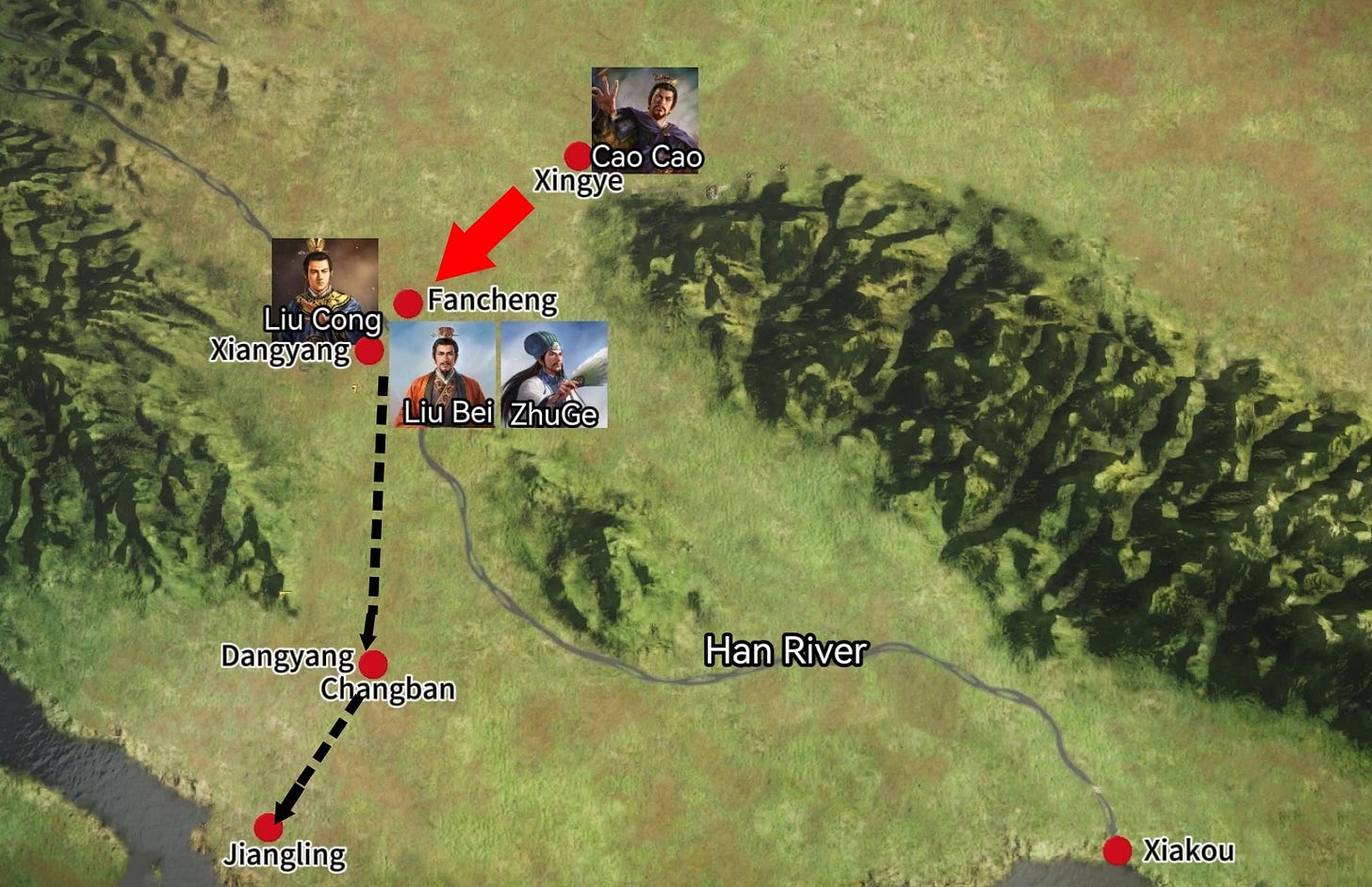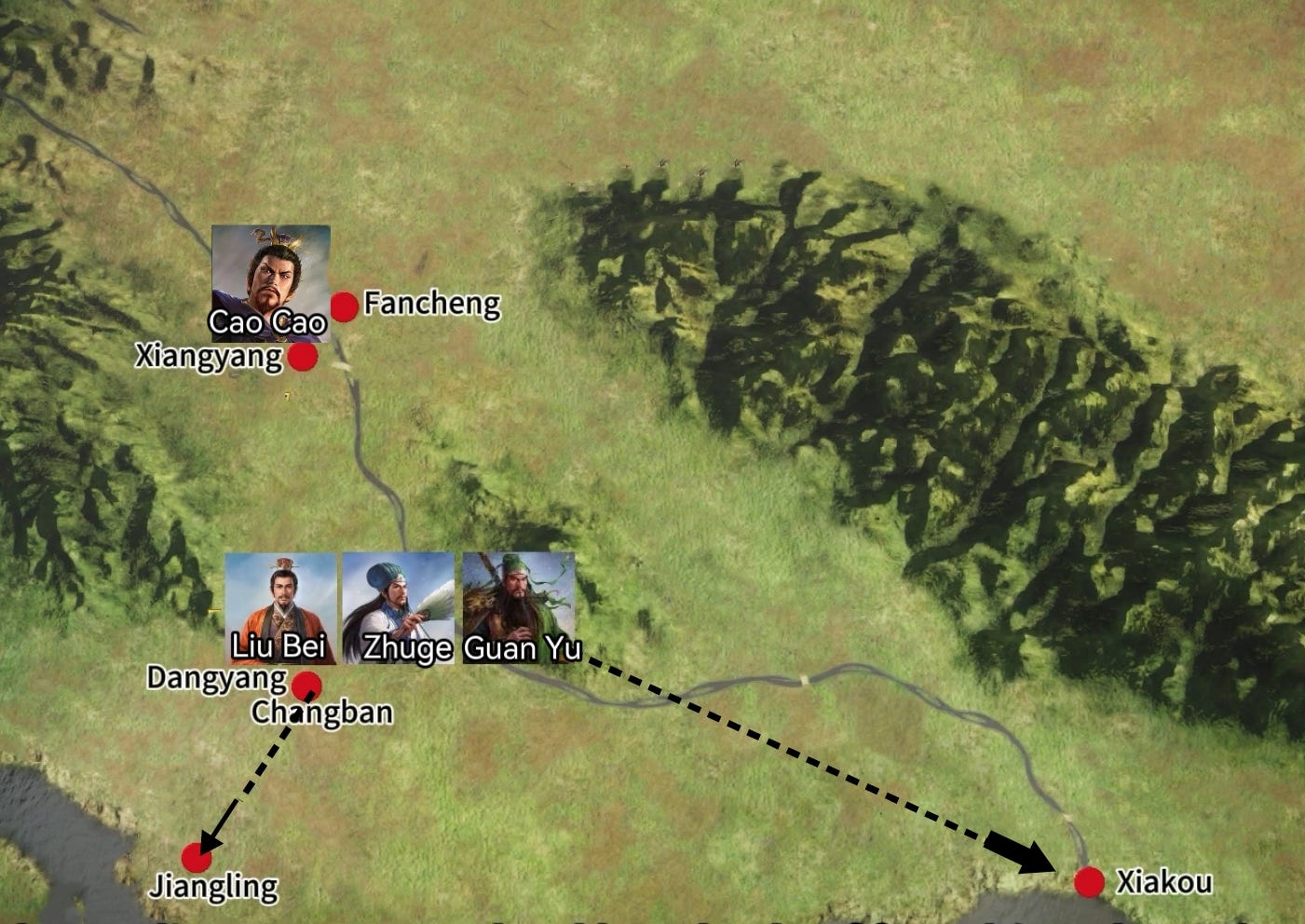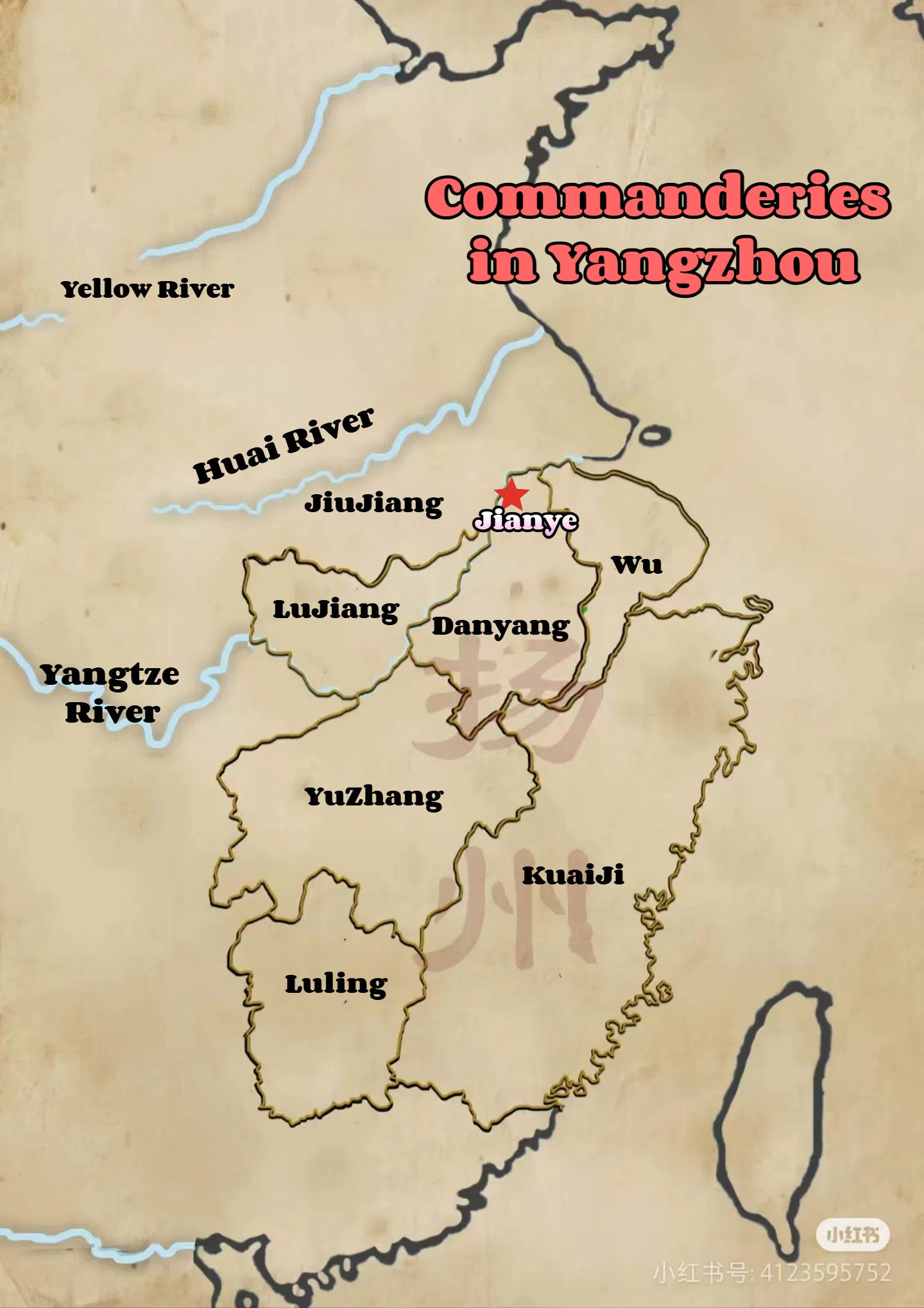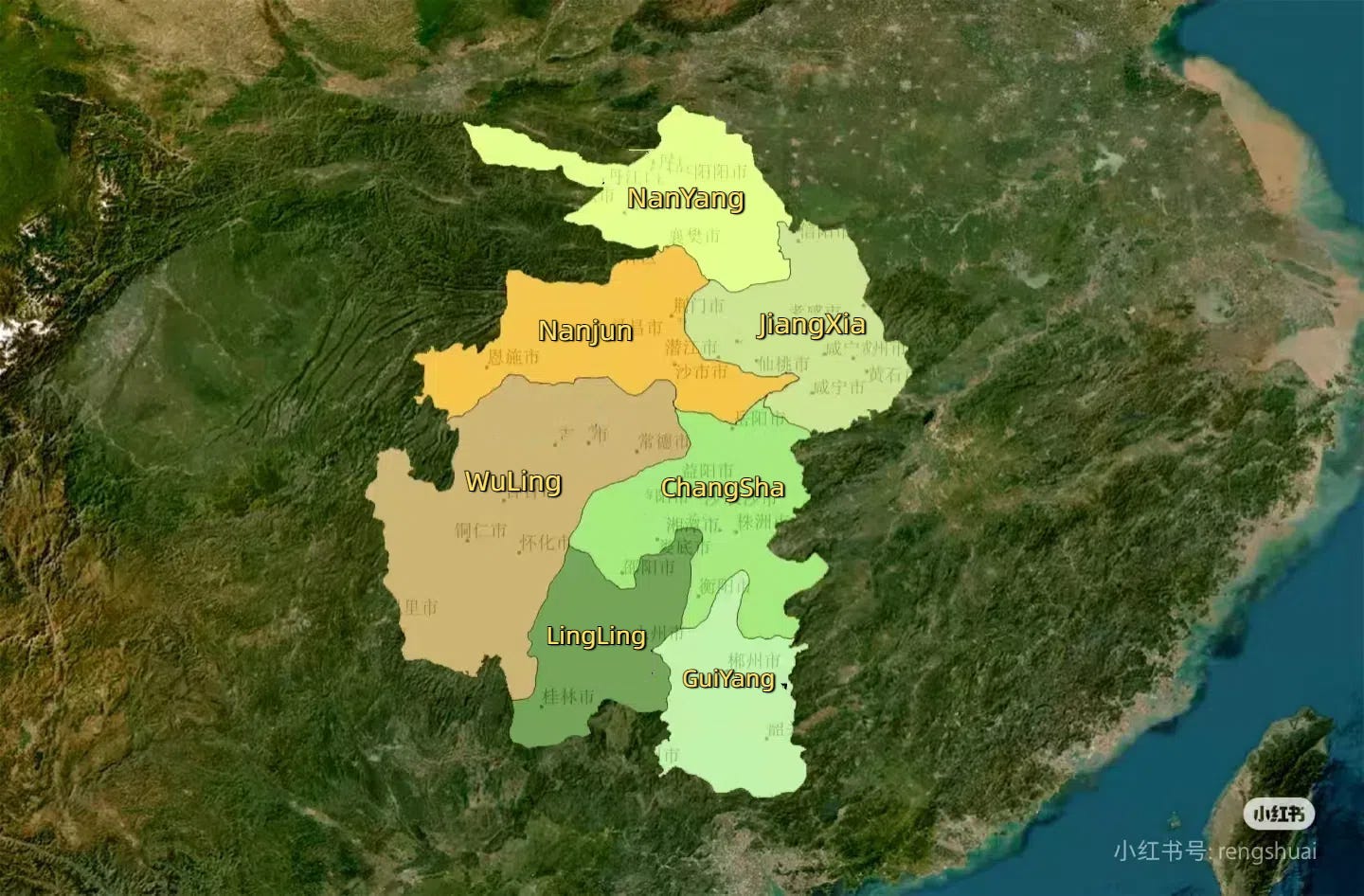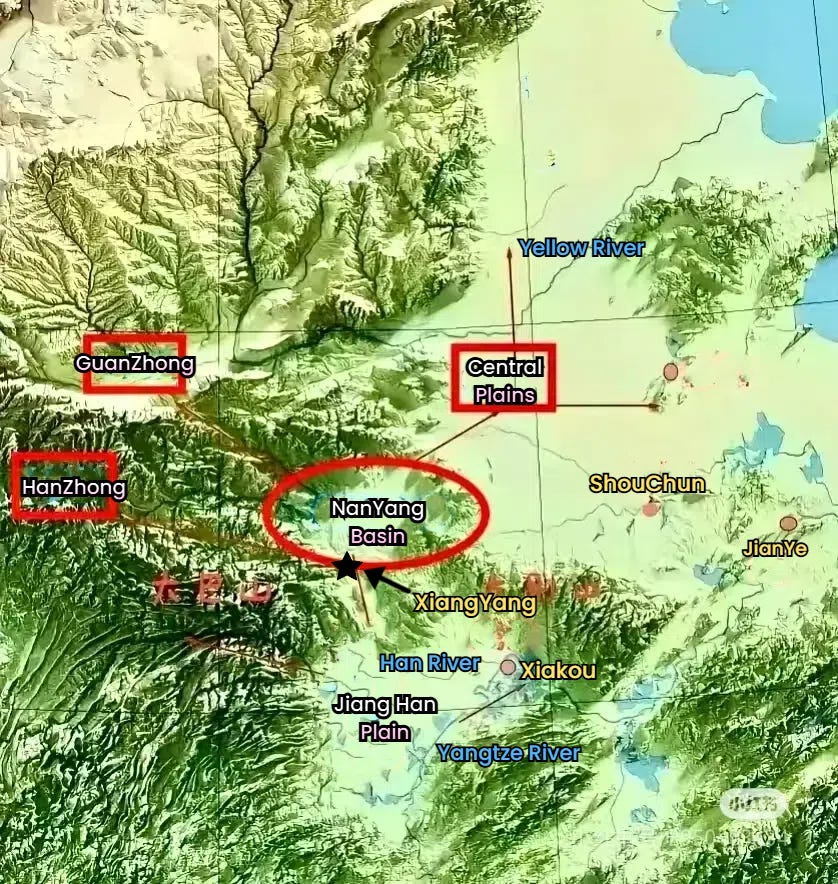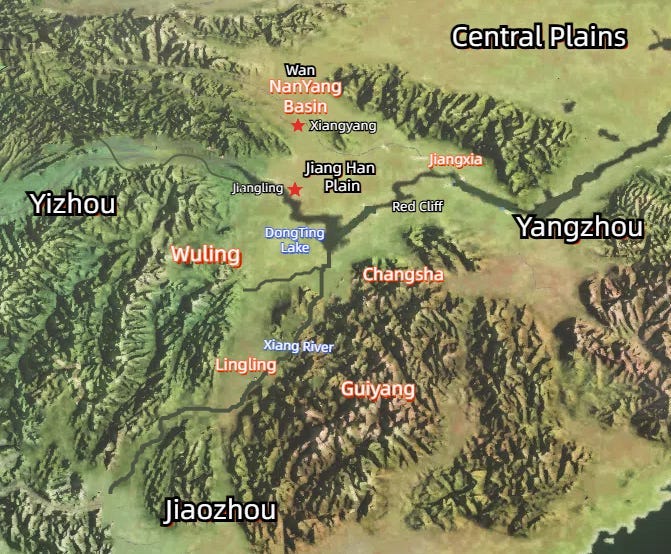Previous Chapter :The Battle of Red Cliff 2 (Three Kingdoms 46)
Catalog of Three Kingdoms’ history
208AD, Hearing that Cao's army was close at hand, Liu Bei quickly reorganised his army and fled towards Jiangling江陵 city from Fancheng樊城.
While passing through Xiangyang襄阳,the capital of Jingzhou, where the Provincial Governor of Jingzhou,Liu Cong刘琮 guarded, Zhuge Liang suggested Liu Bei to capture Xiangyang, and take the strong Xiangyang as the fortress to fight against Cao's army. However, Liu Bei could not bear to do so, Because he considered he and Liu Cong were from the same clan.
Therefore, Liu Bei just stood outside the city and shouted Liu Cong's name. Liu Cong knew that his surrender to Cao Cao hurts Liu Bei very much , so he didn't dare to come out of the city to meet Liu Bei.
Liu Bei had stayed in Xinye新野 for 7 years and was quite popular because of his lenient and benevolent administration. The people around Xiangyang and officials under Liu Cong who were unwilling to submit to Cao Cao all took their families voluntarily followed Liu Bei southward.
When Liu Bei's army marched to Dangyang当阳, the number of people following him reached more than 100,000, and there were thousands of carriages and oxcarts full of supplies and people's belongings, which could only travel about 10 km a day. This greatly slowed down the speed of Liu Bei's army. Some officials around Liu Bei advised that he should abandon the common people and quickly rush to Jiangling. But Liu Bei replied, "If you want to achieve great things, you should put people first. Now that so many people have left their homes to follow me, how can I bear to leave them behind?"Liu Bei continued to travel slowly with the people, only sending Guan Yu to lead hundreds of fast ships along the Han River汉水, heading towards Jiangling first.
Let's take a look at the overview of southern China up to this point, before Cao Cao’s army moved into Jingzhou荆州.
Sun Quan had owned the six commanderies of Yangzhou扬州 except Jiujiang九江, namely Lujiang庐江, Danyang丹阳, Wu吴, Kuaiji会稽, Yuzhang豫章 and Luling庐陵, which were all left behind by his brother Sun Ce孙策. At the beginning of 208 AD, Sun Quan also conquered Huang Zu黄祖, the Commanderial Governor of Jiangxia江夏 under Liu Biao刘表, and annexed most of Jiangxia commandery in Jingzhou. Sun Quan himself was staying in Chaisang柴桑, intending to continue to annex the whole Jingzhou.Liu Biao is no match for Sun Quan, and his son Liu Cong is even less able to defend Jingzhou. At this rate, even if Cao Cao didn't come, Jingzhou would sooner or later fall into Sun Quan's pocket. Therefore, Liu Cong's voluntary surrender to Cao Cao was indeed the best choice.
Jingzhou had seven commanderies, Nanyang南阳, Nanjun南郡, Jiangxia江夏,Lingling零陵, Guiyang桂阳, Wuling武陵 and Changsha长沙. The four southern commanderies ,Lingling, Guiyang , Wuling and Changsha,are farther away from the Central Plains, and the key areas of Jingzhou are still mainly in the north. Among them, Nanyang was the most economically developed and populous. However, at the chaotic Late Han period, when the Central Plains were in turmoil, Nanyang suffered the most serious damage.
Previously, most of Nanyang had belonged to Cao Cao when Zhang Xiu张绣 surrendered, and most of Jiangxia had been taken by Sun Quan with Huang Zu's defeat. However, All 3 of the most important cities in Jingzhou are actually in Nanjun commandery.
The first was Xiangyang, the seat of Jingzhou, where Liu Biao's residenceand the families of most of Jingzhou's civil and military officials were basically located. Next is Fancheng樊城, which is across the Han River from Xiangyang. Xiangyang and Fancheng held the throat of the northern cavalry going south to the hinterland of Jingzhou.The two cities of Xiangyang and Fancheng were strongly fortified, easy to defend and difficult to conquer, and have always been a place of great military importance. It has been, and will continue to be, an irreplaceable fortress before and for thousands of years to come.
Xiangyang is located in the southernmost part of the Nanyang Basin, and is surrounded by vast mountains to the east and west, making it virtually the only gateway to Central China in ancient China. Xiangyang was situated along the Han River, along which one could go all the way southeast to the Yangtze River or northwest to Hanzhong汉中, so that by holding Xiangyang, one could also control all the ships travelling south and north in Central China.
Xiangyang was actually a young city during the Three Kingdoms period, when China's first major confrontation between the North and South began, pushing Xiangyang, the waistline of the whole of China, to the forefront of the times. Since then, the confrontation between the northern and southern regimes over the past 2,000 years has not been able to get around the fight for Xiangyang. Especially when the northern regimes went south, as long as they captured Xiangyang, they could reach the Yangtze River through the Han River and then go down the Yangtze River, or go south to Jiangling, controlling the vast Jianghan Plain, and the trend of unification would be unstoppable.
Jiangling, the transport hub of Jingzhou, which is the present day Jingzhou City of HuBei,is also the seat of Nanjun. If Xiangyang and Fancheng are the throat of Jingzhou, then Jiangling is the heart of Jingzhou. The main reason why it is said that Jingzhou is well connected by water and land transport is because of Jiangling. After occupying Jiangling, we can enter Yizhou to the west or go east to Yangzhou all along the Yangtze River, and there is no longer any obstacle for us to pass through the four commanderies of southern Jingzhou in the south.
Later on, whether Liu Bei borrowed Jingzhou as written in novels or borrowed Nanjun in history, in fact, the main thing was to borrow Jiangling. Without Jiangling, it would have been a nightmare for Liu Bei to cross the mountains from southern Jingzhou into Yizhou. It can even be said that if you get Jiangling, you get the Nanjun, and if you get the Nanjun, you get most half of Jingzhou.
Liu Bei's destination for this southward journey was Jiangling, which was not only in a strategic geographical location, but also hoarded a large amount of military supplies. But his rival Cao Cao understands this just as well; will Liu Bei be able to get what he wants?
To be Continued
Your support is my greatest motivation!





